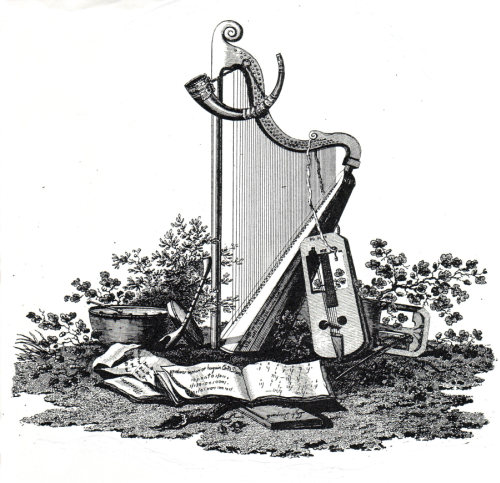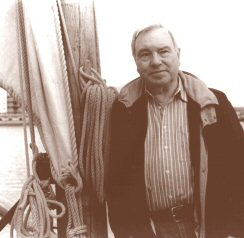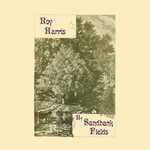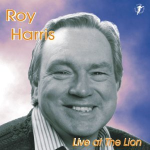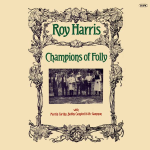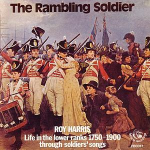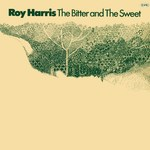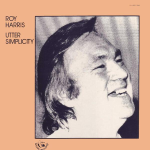|
|
Gwerincymru — o Gymru o’r byd |
|||||||||
|
Armed with nothing more than a great voice, Cardiff’s favourite octogenarian is going out on the road. Mick Tems reports.
It’s a momentous occasion; Roy Harris is 80 years young on June 15, and he’s raring to go. And as an 80th birthday present, he’s planning a grand tour of the small acoustic music venues of Britain, starting in Llantrisant Folk Club on June 19. Tomorrow – the world…
“I’ll be starting at Llantrisant, then continuing until December”, said Roy. “I decided not to take it into 2014, because I have another anniversary that year - 50 years a professional, a half-century of making my way as an a capella singer, the type least wanted in many clubs. I'm proud of that.”
What delights are you planning to share with the audience? “My usual mixed bag, with a bias towards the traditional, but including some songs by the likes of Cyril Tawney and Ewan MacColl, plenty of choruses, some stories, tall tales - I like the audience to have a laugh. Perhaps some things from my skiffle days, or even before then. I can't be more specific, because all my performances are ad lib.”
Roy’s career started with skiffle and floor spots at early folk clubs. He moved to Cardiff in 1960, and he opened the first folk club in South Wales. “Why did I move here? It was Love! I married Elaine, a wonderful Welsh woman. Now, 56 years later, we have a Welsh-speaking family, but for the two great-grandchildren. They can't speak anything yet - but they will.”
Roy formed The Cardiff Folk Song Club, the first folk club in South Wales: “Absolutely - the first. I'm proud of that fact too. We opened in the upstairs room of the Estonian Club in Charles Street. On our first night, we had an audience of 11 people, four of them family. By the end of that year we had outgrown the upstairs room, capacity 90, and had moved to the downstairs ballroom, where we frequently had over 300 people, and were turning some away. If you wanted a seat, you got there early!
“We met on Thursday evenings at 8pm, starting on the dot, always a good policy. We ran for a few weeks without guests, to build up a kitty, then booked The Songwainers from Cheltenham, followed by Tony McCarthy of London, a concertina and CND activist, as were many on the folk scene in those days.
“Other guest nights I recall featured The Haverim, two Jewish boys who sang Cockney and Yiddish sons - a lovely evening. The Ian Campbell Group, who arrived minus a sick Ian but with a pregnant Lorna, plus Swarbrick and company - another stormer night. Bob Davenport, the late Dave Brady, who sang and played concertina despite having only one arm. Cyril Tawney, Shirley Collins, Nigel Denver, all these people making their Welsh debuts. The audiences responded so well that the club was soon talked about by all the pros as the place to get a gig if you possibly could. Alex Campbell came, Sandy and Jeannie Darlington from the USA, Julie Felix, newly arrived in the UK, and so on.
Roy lists the good performers: “Doug and Tina Fraser, Bernard Ellis, Tony Holland, a splendid five-string player, who went on to be a big figure in bluegrass circles before his sad death a few years ago. Alan Chesterfield, a real star in American old-timey - I'd love to hear him again. Welsh-language song was very well dealt with by Gareth Francis, his sister Eluned and friends, under the name of the Gareth Francis Singers.
“They had been planning to open a club in Cardiff, but I opened first. Neither of us knew each other at that time. They did open a few weeks later, but decided eventually that there wasn't room for two, so threw in their lot with us and became a significant part of our resident team.”
It seemed right to Roy that the club should have a Welsh element, and they filled that spot well. “They later played on Welsh TV under the name of Y Triban,” he said. “The club had a good team of residents to call upon, and some developing floor singers. The audience numbers and the ambience of the club nights told us that we were doing something right, but we had two powerful allies - The TV and the South Wales Echo.
“TV was airing a weekly show called Hootenanny, showing folksingers in a simple format, with the emphasis on the songs, a formula that worked beautifully and has never been bettered, nor even equalled, on screen since. The fact that Hootenanny artists were coming live to Cardiff drew loads of people in, and most of them came back for more. “Echo journalist Sonia Davies was a great fan of the club. Her stories and reviews gave us valuable publicity, bringing many more people in. If she gets to read this - a big Thank You, Sonia, we owed you a lot.”
The time came when even the Estonian's ballroom was too small. Roy said: “When you get a full house and turn-aways for a serious artist like Gaelic singer Joe Heaney, you know that you need a bigger home. On that night a spindly young lad with a wispy beard asked if he could sing. He did all right – stand up, Mike O'Leary-Johns!”
Roy was turning away so many people that they had no choice but to go bigger. “We chose the British Legion club in Womanby Street, now home to Clwb Ifor Bach,” he said. “On the opening night with guest Tom Paley on his first tour of Britain, we had nigh on 500 people in - the atmosphere of the old clubroom transferred perfectly to the new one. Luke Kelly of the Dubliners sang his heart out there, being closely observed by a pigeon that flew in via an open window, stayed right until the end, then exited with the rest of the crowd!”
Roy began a semi-professional career singing around South Wales, Bristol and the West Country, Swindon and Cheltenham. He got the sack from three jobs for taking time off to go singing.
“I decided to go full time after a good reception at Sidmouth Festival in 1964,” he said. “I moved back to Nottingham, my home patch, and started touting for work. I opened Nottingham Traditional Music Club in 1967, a great club which lasted 22 years - it had its own Morris team, which is still running, mummers, a research group and the home of the Notts Alliance group.”
From 1976 to 1980, while he was director of Loughborough Folk Festival, he coined the phrase “a celebration of folk music”, and christened it “The National”. He compèred The Folk Prom at Royal Albert Hall, and he toured in Europe, Canada and the USA, where he made 23 trips.
Roy sang on many radio and TV folk shows and theatre productions, as well as running his own folk show on BBC Radio Nottingham and a 15-year career as a television actor, doing small parts and extra work. He opened the Traditions At The Tiger club in the Nottingham suburb of Long Eaton, and ran it for three years until moving back to Cardiff.
“It's been a grand life in folk music - tough at times, but worth it,” he said. “It got me out of those factories and it sent me around the world. It introduced me to some great people, some lifelong friends. And it gave me that superb thrill of standing before an audience to join with them in song. Nothing can beat that.”
Notts Alliance were the house band of the Nottingham Traditional Music Club, which Roy founded in 1967: “Nottingham was a hotbed of folk then - Loads of clubs, some established, some soon flickering out, but plenty to choose from. Except for those that preferred British traditional it seemed. They complained of a lack of their favourite music locally, so I opened up a club specialising in that music. It was a success, much talked about, made several broadcasts, and finally ran out of steam 22 years later.
“The group, originally known as the NTMC Singers, went out as much to publicise the club as anything else, but we became popular and had some great times. Ian Stewart was our main instrumentalist, (guitar, melodeon, concertina, bagpipes), Laurence Platt, (melodeon), Roger Grimes, (Accordion), I rattled spoons and beat a tambourine, and we all sang. The group recorded an album called 'The Cheerful 'Orn' for Tradition Records, appeared on Midlands TV, and local and national radio. A song I sang on the album has been taken up by the Unthanks.”
Roy had an impressive album list of five for Topic, One for Free Reed, three for Fellside and a live one for Wildgoose. Can he pick those that he thought were really special? “It was special being chosen for Topic because they were Number One, artists chosen by A. L. Lloyd, so I was chuffed at that. None of mine were outstanding, I was never too comfortable in a studio. But one of my Topics was on John Peel's show. One track from my Free Reed album, The Tale Of Ale, was chosen by a Cambridge professor on Desert Island Discs.”
Then there was Roy The Runner: I recall summer days in Sidmouth Festival, going for a long-distance run with Mr Harris. In the end, it was all I could to keep up, puffing profusely, while Roy trotted on: “Great Days,” he said. “I loved my running time. Elaine and I trained and raced together, and it was super.
“It got me back into sport as a middle-ager. I had a sporting youth, having trials with Nottingham Forest, hurdling for my county in the English Schools Championship, being an amateur boxer, and representing the RAF at Bayonet Fencing in the Royal Tournament 1956. I served in the Army and the RAF, being a Physical Training Instructor for some time in the RAF. I love sport almost as much as music - now, because of diabetes and allied problems, I find simply walking painful. Life has become frustrating at times. By the way, that Sidmouth was a long time ago. I used to be a regular guest there, since the new regime took over.”
But with all his sporting interests, Roy suffered a stroke. He could not work. I organised a special benefit day for him, and an army of folk artistes gave their services for free (including Pete Coe, Johnny Adams, and Chris Coe.) Little could I have known that, long after, I too suffered a stroke - but it was much more severe. I asked Roy about Stroke, which kills and incapacitates thousands of people: what obstacles, problems or hurdles do recovering stroke survivors encounter?
“I know that mine was slight compared to yours, but it hindered me quite a bit with speech and weakness of the arm and leg,” Roy said. “I fought back via lots of exercise, physiotherapy, and strengthening my voice by reading aloud with much focus on diction. It all worked, though I still have occasional lapses of speech, slurring and 'word-blindness', which means the inability to find a certain required word - which is why I'm not too keen on answering the telephone. It’s a strange feeling for a gobby bloke like me.”
The Folk Scene has taken Roy to the far reaches of Australia and America, and was even the first professional guest to sing at the Bermuda Folk Club: “I went to Australia in January and was drenched in sweat ten minutes after stepping off the plane. I remember fossicking for gold in Hill End, an old Gold Rush town during a festival there. I saw my first kangaroo - a dead one, lying by the roadside being eaten by some other animal. I was driven through a forest of eucalyptus trees ten minutes after a thunderstorm - the scent from the trees was overwhelming.
“I flew over Lake Maquarrie in a light plane. We buzzed over a huge flock of flamingo, which rose as one and flew off like an enormous pink cloud. And I sang on the stage of the Sydney Opera House. As far as America concerned, I have made too many trips to mention - I've been going there for nigh on 40 years. In 2009 the Pinewoods Society of New York awarded me their annual award for lifetime services to traditional music.
“These are the special qualities: some wonderful tunes, and words that tell the people's story, that have the blood and guts of humanity in them. The sense of continuity with the past and of pride in belonging to the human family.”
A quick question to Roy: If he had his time over again, what would he rather be – for instance, a doctor, an architect or a folk singer? “No question about it: a folk singer,” Roy said. “And a fiddle player, if I could learn without trying!”
|
||||||||||
